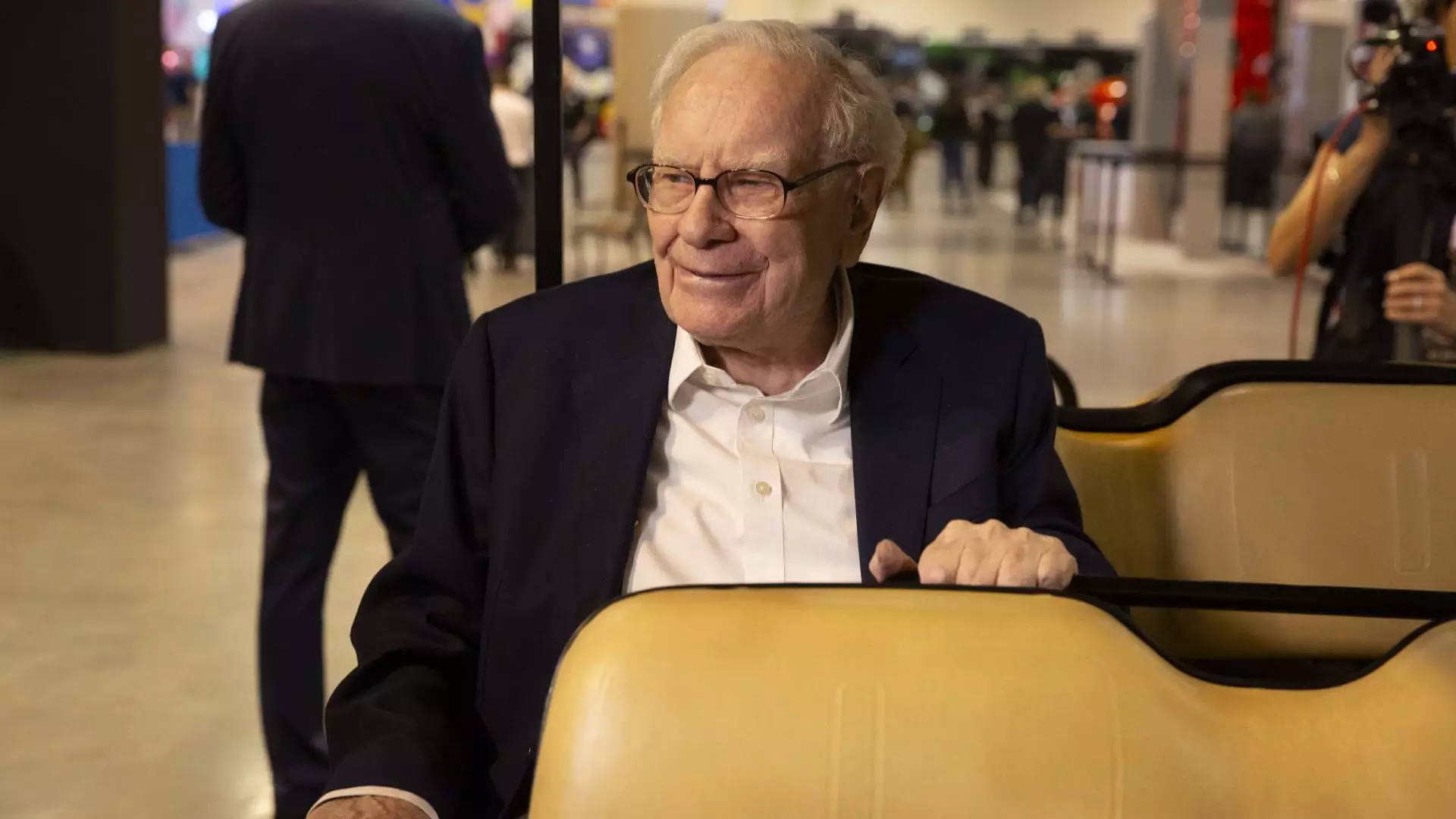Berkshire Hathaway’s recent earnings report has certainly stirred the waters among investors and market analysts alike. With a staggering increase in operating earnings, up by 71% to an impressive $14.5 billion for the fourth quarter, the conglomerate has shown that its business operations, particularly in insurance underwriting, are flourishing. The insurance sector’s profit skyrocketed to an impressive $3.4 billion—a dramatic increase of 302% from the previous year. However, beneath this apparent financial triumph lies a notable dichotomy: the slow performance of Berkshire’s portfolio investments has led to a palpable sense of uncertainty regarding the company’s cash management strategies.
Despite the eye-catching figures in operating profits, Berkshire Hathaway’s investment gains paint a less optimistic picture. In stark contrast to the $29.1 billion seen in the prior year, investment gains fell to just $5.2 billion, which has sparked renewed speculation about the company’s approach to capital allocation. The consistent trend of selling off equities—marking nine consecutive quarters as a net seller—has catching the attention of market observers. In the last year alone, the conglomerate has offloaded about $134 billion worth of equities. The extent of this selling frenzy, particularly regarding major holdings in Apple and Bank of America, raises questions about Buffett’s strategic direction.
Warren Buffett, often hailed as the “Oracle of Omaha,” has amassed an unprecedented cash pile totaling $334.2 billion, surpassing the third quarter’s $325.2 billion. While some shareholders eagerly anticipate news regarding how this capital might be deployed, many remain frustrated by the lack of immediate action. Buffett’s assertion that raising cash does not signify a retreat from investing is somewhat reassuring. He emphasized that his dedication to investing in stocks remains strong, despite sitting on historically high cash levels. This dichotomy presents a complex narrative for investors caught between impatience and faith in Buffett’s long-term vision.
In his annual letter, Buffett reassured shareholders that current cash reserves should not be perceived as a negation of Berkshire’s investment philosophy. He acknowledged the high market valuations contributing to his hesitation in making aggressive new investments, stating, “often, nothing looks compelling.” Furthermore, he expressed confidence in his chosen successor Greg Abek’s ability to capitalize on market opportunities, which adds another layer to Berkshire’s strategic outlook. This commentary reflects Buffett’s recognition of prevailing market conditions, urging investors to remain grounded even as Berkshire’s stock surged by 25.5% in 2024—a robust performance compared to the S&P 500.
Amid these financial dynamics, the absence of stock buybacks in both the last quarter and the outset of 2025 stands out as a significant factor. Some analysts and investors are expressing discontent over what they see as a stagnation in strategic maneuvers. However, others maintain faith that this calculated conservatism positions the company advantageously for future opportunities—particularly as Buffett prepares to navigate potential market downturns. According to Bill Stone, Chief Investment Officer at Glenview Trust Company, maintaining such financial resilience will ultimately empower Berkshire Hathaway to seize advantageous situations when they arise.
Berkshire Hathaway has certainly enjoyed a strong rally in recent years, with its stock price steadily climbing. Nevertheless, the company finds itself at a crossroads where questions about investment strategy and cash management practices surface. With expanded cash reserves and a strategic holding pattern in the face of high valuations, time will reveal whether Buffett’s conservative approach will yield fruitful opportunities when market conditions shift. Investors remain watchful, hoping that the essence of Berkshire’s legacy as a robust investment vehicle will prevail, guided by Buffett’s timeless investment principles and the promising leadership from his successor. In the end, patience may prove to be the ultimate virtue in the ever-evolving landscape of investing.

